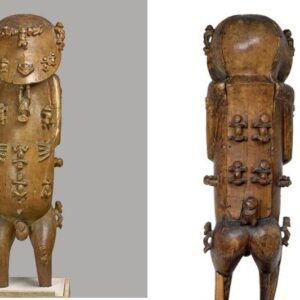In a move that has sent shockwaves through the music industry, the Academy of Country Music (ACM) has announced a lifetime ban on global superstar Beyoncé following the release of her country-inspired album “Cowboy Carter.” The decision, which was met with both support and criticism, highlights the ongoing debate surrounding genre boundaries and artistic expression within the country music community. Let’s delve into the details of this controversial ban and its broader implications for the music world.

Beyoncé’s foray into country music with her album “Cowboy Carter” was a bold departure from her R&B and pop roots, showcasing her versatility as an artist. The album, which featured a fusion of country, hip-hop, and soul influences, aimed to push the boundaries of traditional country music and challenge preconceived notions of genre.
However, the ACM’s decision to impose a lifetime ban on Beyoncé reflects a conservative stance on genre classification and artistic authenticity within the country music industry. Critics of the ban argue that it stifles innovation and diversity in music, while supporters maintain that preserving the integrity of country music requires adherence to established norms and traditions.
The controversy surrounding Beyoncé’s ban has sparked heated discussions about the evolving landscape of country music and the role of artists in reshaping genre conventions. With country music embracing a more diverse range of influences and voices in recent years, the ACM’s decision to ban Beyoncé underscores the challenges of navigating changing cultural dynamics while upholding traditional values.

In response to the ban, Beyoncé’s representatives expressed disappointment, emphasizing the importance of artistic freedom and the exploration of new musical territories. They argued that music genres are fluid and should reflect the diverse experiences and influences of artists.
The ACM’s stance on Beyoncé’s “Cowboy Carter” album raises broader questions about the nature of genre and the criteria for inclusion within the country music community. As music genres continue to evolve and intersect, the boundaries between styles become increasingly blurred, challenging established definitions and inviting innovation.
Critics of the ban point to the historical context of country music, which has often drawn from diverse cultural traditions and influences. Artists like Johnny Cash, Dolly Parton, and Willie Nelson have incorporated elements of folk, blues, and rock into their music, contributing to the genre’s rich tapestry of sound.
In contrast, supporters of the ban argue that Beyoncé’s crossover into country music represents a departure from its roots and dilutes its distinctive identity. They contend that genre boundaries are essential for preserving the unique character of country music and honoring its heritage.

The ACM’s decision to ban Beyoncé also highlights broader issues of representation and inclusivity within the country music industry. Historically, country music has been criticized for its lack of diversity, with artists of color facing barriers to recognition and acceptance.
Beyoncé’s ban from the ACM raises questions about the industry’s willingness to embrace diverse voices and challenge entrenched stereotypes. As artists like Lil Nas X and Mickey Guyton push for greater inclusion and visibility within country music, the ACM’s decision to ban Beyoncé serves as a reminder of the ongoing struggles for representation and recognition.
Ultimately, the controversy surrounding Beyoncé’s ban reflects deeper tensions within the music industry over artistic freedom, cultural authenticity, and the evolving nature of genre. As music continues to evolve and intersect with diverse influences, the boundaries between genres become increasingly fluid, inviting exploration and experimentation.
In conclusion, the Academy of Country Music’s lifetime ban on Beyoncé in response to her “Cowboy Carter” album underscores the complexities of genre classification and artistic expression within the music industry. The controversy raises important questions about the nature of genre boundaries, the role of artists in shaping musical traditions, and the ongoing pursuit of diversity and inclusion in country music. As the debate unfolds, it remains to be seen how the industry will navigate these challenges and embrace the evolving landscape of music.
News
The stunning Temple of Garni, Armenia. Built nearly 2,000 years ago.
Nestled amidst the rugged terrain of Armenia stands a testament to ancient splendor: the stunning Temple of Garni. Built nearly 2,000 years ago, this architectural marvel is…
Reviving the Ancient Abu Simbel Temples: Restoration Efforts in Aswan, Egypt, 1968
In 1968, an extraordinary feat of human endeavor unfolded on the banks of the Nile River in Aswan, Egypt. The ancient Abu Simbel temples, standing for over…
Rare and Ancient Sculpture of Lord Ganesha Carved into the Rocks at Raghunandan Hills (Unakoti)
Nestled amidst the rugged terrain of Raghunandan Hills lies a treasure trove of history and spirituality — the rare and ancient sculpture of Lord Ganesha, immortalized in…
African Architecture: The Unique Construction of Djenné’s Great Mosque
In the heart of Mali lies a testament to human ingenuity and cultural heritage: The Great Mosque of Djenné. Built with indigenous materials, primarily mud brick and…
Bronze Spartan Shield from the Battle of Sphacteria 425 BC Displayed at Athenian Agora Museum
Among the many treasures housed at the Athenian Agora Museum, one artifact stands out for its historical significance and the stories it holds: a bronze Spartan shield,…
Enigmatic Pacific Deity: Captivating Polynesian Artistry
In the heart of Polynesia, amidst the whispers of the Pacific winds and the rhythm of ancient chants, lies a testament to the spiritual and artistic richness…
End of content
No more pages to load











